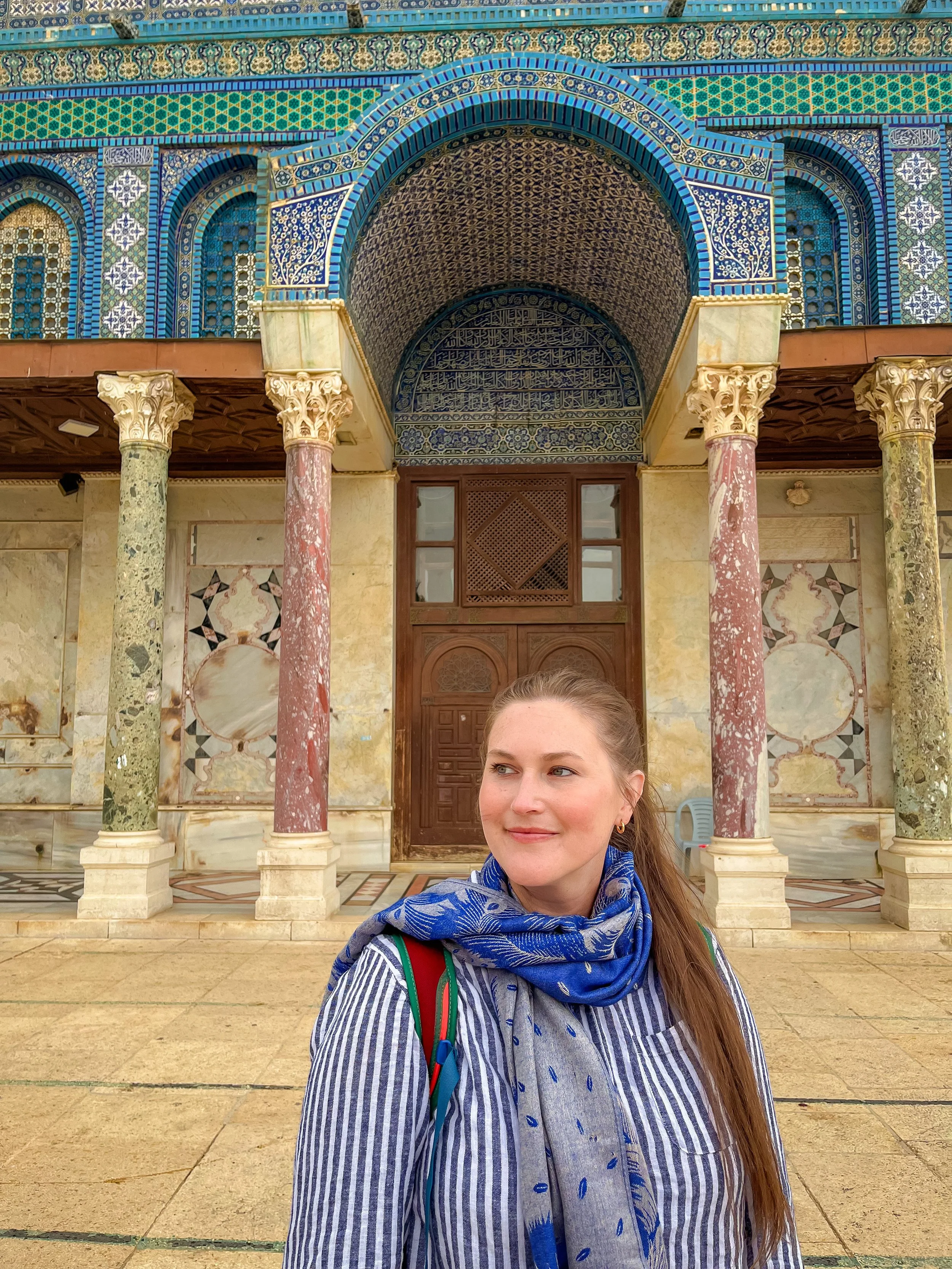Bearing Witness
What makes someone Jewish? Why did Hitler hate the Jews? How do we know the Holocaust happened? Did the rest of the world know what was happening to the Jewish people? Why does any of this matter? I hear these questions often from students who visit The Breman - Atlanta’s Jewish museum. As a holocaust educator and museum docent, it is my honor to answer them.
Every week people from all over Georgia visit to learn about antisemitism and the Holocaust. Some of my favorite groups are young people, ages 10-17. They’re excited to be out of their classroom, not realizing the gravity of the museum they’re about to tour. These kids, as well as many adults, have little concept of the Holocaust or antisemitism. In a 2023 Economist poll, one in five respondents ages 19-29 believed that the Holocaust is a myth. This is truly alarming for our nation and for humanity. It is especially alarming for the Jewish community and those of us who love them.
As museum docents, we face the challenge of condensing Holocaust history into a single hour—but it’s a vital task. People confront its harsh truths and witness Jewish resilience. Some are moved by Anne Frank or Elie Wiesel’s words; others find inspiration in the bravery of the Warsaw Ghetto children. I have seen people cry, as the reality of the Holocaust hits home. I pray that these moments spark lasting change—a commitment to fighting antisemitism and standing with the Jewish community.
Mariah leading a tour at Atlanta’s Jewish Museum.
The Holocaust and My Story
My own fascination with the Holocaust, ignited in a fourth-grade history class, testifies that childhood experiences can shape our lives. The accounts of Nazi atrocities against European Jews, the ghettos, and the death camps, were deeply disturbing, yet they sparked a desire for understanding. Despite the nightmares they induced, I felt compelled to learn more. I wanted to understand how such horrors could have occurred.
I delved into the Holocaust through books and film, developing a deep appreciation for Jewish history. My academic pursuits led me to Poland in college, where I discovered the rich tapestry of Jewish life that had flourished in Europe long before the war. During graduate school, I found myself in Budapest where I was profoundly saddened by the tragic fate of the Hungarian Jewish community, one of the last to be deported to the Nazi death camps. These experiences played a significant role in my calling to the Jewish people.
While I had immersed myself in the history, locations, and stories, I had never personally encountered survivors until I moved to Atlanta last year. Atlanta is home to over one hundred individuals who lived through this horrific period. Each survivor’s story has transformed my understanding of the Holocaust from merely a historical event to a deeply personal experience.
I recently met Leo, whose mother was deported to a labor camp. He was left to endure the war years in the Budapest ghetto with his grandparents, uncertain if she would ever return. Miraculously, she survived. I also met Marie, who, like Anne Frank, spent her childhood concealed in a small attic apartment. Then there was Leah, whose father was seized during Kristallnacht. Her mother and younger sister attempted to leave Germany on the ill-fated S.S. St. Louis, only to be returned to Europe due to invalid visas. Leah and her middle sister, however, were spared, finding refuge in England. These are just a few of the stories I’ve been honored to hear.
Shoah: Another Name for “Holocaust”
You are probably familiar with the term “Holocaust,” now synonymous with the brutally systematic murder of six million plus European Jews. This word, which originates from the Greek holokauston, means “a burnt sacrifice offered to God.” While there isn’t evidence for who coined the term, it became widely used post World War II due to the Nazi’s gruesome and inhumane “Final Solution” for the Jewish people-the gas chambers and crematoria.
Because the very definition of “holocaust” is religious in nature, many Jewish people are uncomfortable using this word. It describes a religious offering, when the terrible acts committed by the Nazis were deliberate acts of evil. In Israel and Jewish communities all over the world, a new phrase originated, and the Holocaust became known as the Shoah. In Hebrew shoah means “catastrophe” or “ruin.” Biblically, we see reference to a shoah in both the books of Zephaniah (1:15) and Job (30:3).
Yom HaShoah, Israel’s Holocaust Remembrance Day, is observed annually on the 27th of Nisan, shortly after Passover. In 2025, it fell on April 23rd. The day honors Holocaust victims and the resilience of European Jews. It marks the Warsaw Ghetto Uprising, which began on April 19, 1943, when around 700 Jewish fighters resisted 2,000 German troops for nearly a month. Though the uprising ended in defeat and the ghetto’s liquidation, it remains a powerful symbol of courage.
In Israel on Yom HaShoah, the whole country comes to a standstill. A siren sounds, and for two minutes cars and pedestrians stop. In silence they honor the memories of those lost to the Shoah, the catastrophe they will never forget. They will remember their mothers and fathers, brothers and sisters, grandparents, aunts and uncles. Six million Jewish people lost to the worst of humanity.
Fighting Antisemitism: What Can You Do?
While a multifaceted issue, I believe the deepest driving force behind this hatred is pure evil: Satan, the adversary, who hates God, his people, and his plans. Antisemitism neither began nor ended with Hitler. The hatred of Jewish people has a long and insidious history. Called, “the oldest hatred,” its roots can be traced back to the early church and beyond. Throughout history, it has resurfaced in various forms. Even in our modern world, antisemitism persists and is rising in the wake of October 7th and growing anti-Israel sentiment.
A critical question confronts us: as Christians, are we truly prepared to stand with our Jewish brothers and sisters? Do we actively challenge antisemitic rhetoric and actions when we encounter them? Jesus repeatedly emphasized that we should love God and our neighbor. As 1 Corinthians 13:1-2 reminds us, even the most profound spiritual gifts are rendered meaningless without love. This is a call to action. What are we doing to show the love of Messiah Yeshua to the Jewish people? Standing against antisemitism is one way we can do this.
Amidst the horrors of the Shoah, there were some who were compelled to act. These individuals risked their own lives to protect and rescue Jews. Their acts of courage earned them the title “Righteous Among the Nations.” These were people from all walks of life, including royalty, intellectuals, religious figures, and ordinary citizens, demonstrating compassion and bravery. Many were motivated by their faith in Yeshua, Jesus, the Jewish Messiah. Their acts of extraordinary selflessness were the embodiment of Jesus’s teachings. They truly loved their neighbors.
I encourage you to seek meaningful ways to express love to your Jewish neighbors and friends. For many, the Holocaust is not a distant historical event, but a deeply personal wound, trauma passed down through generations. Showing interest in Jewish culture and history, and empathy for Jewish suffering is a great place to start.
By Mariah Charnock
Community Engagement Coordinator


